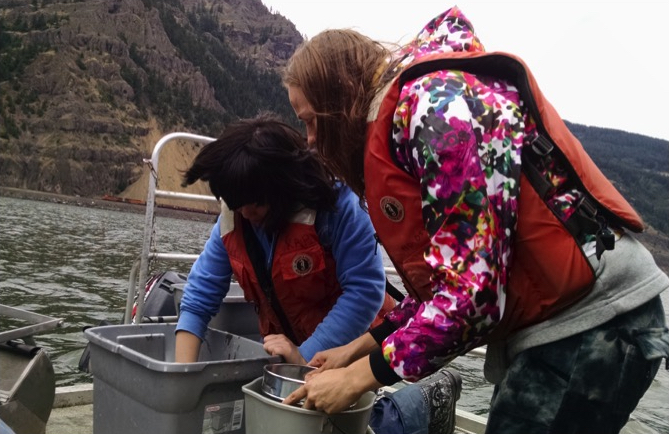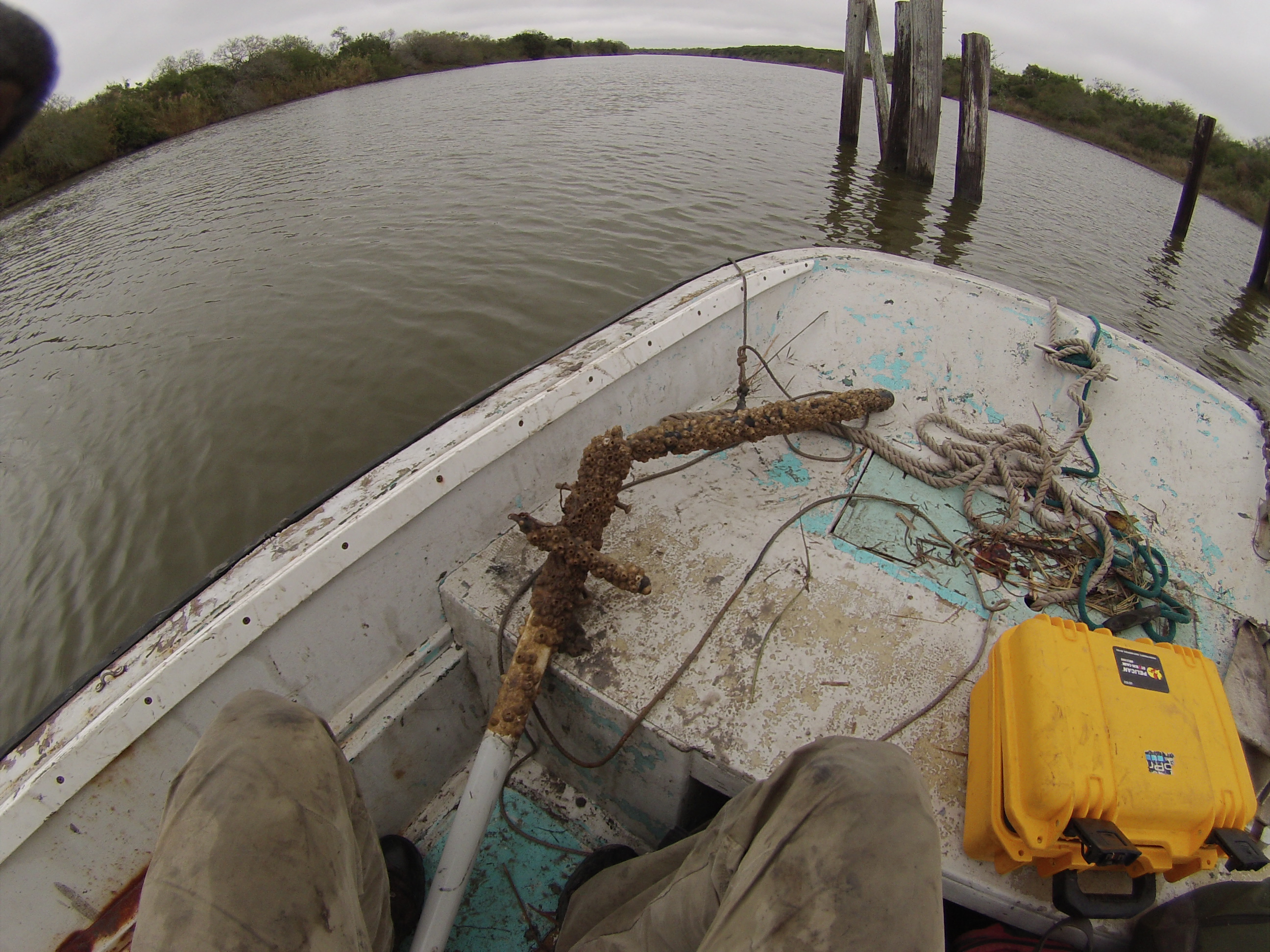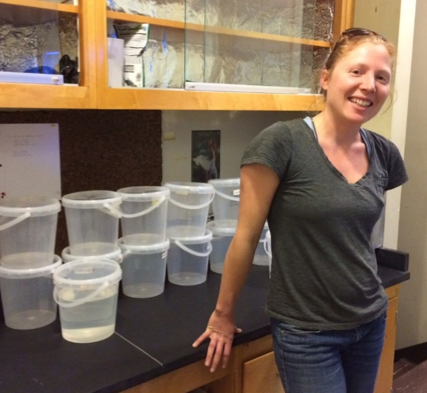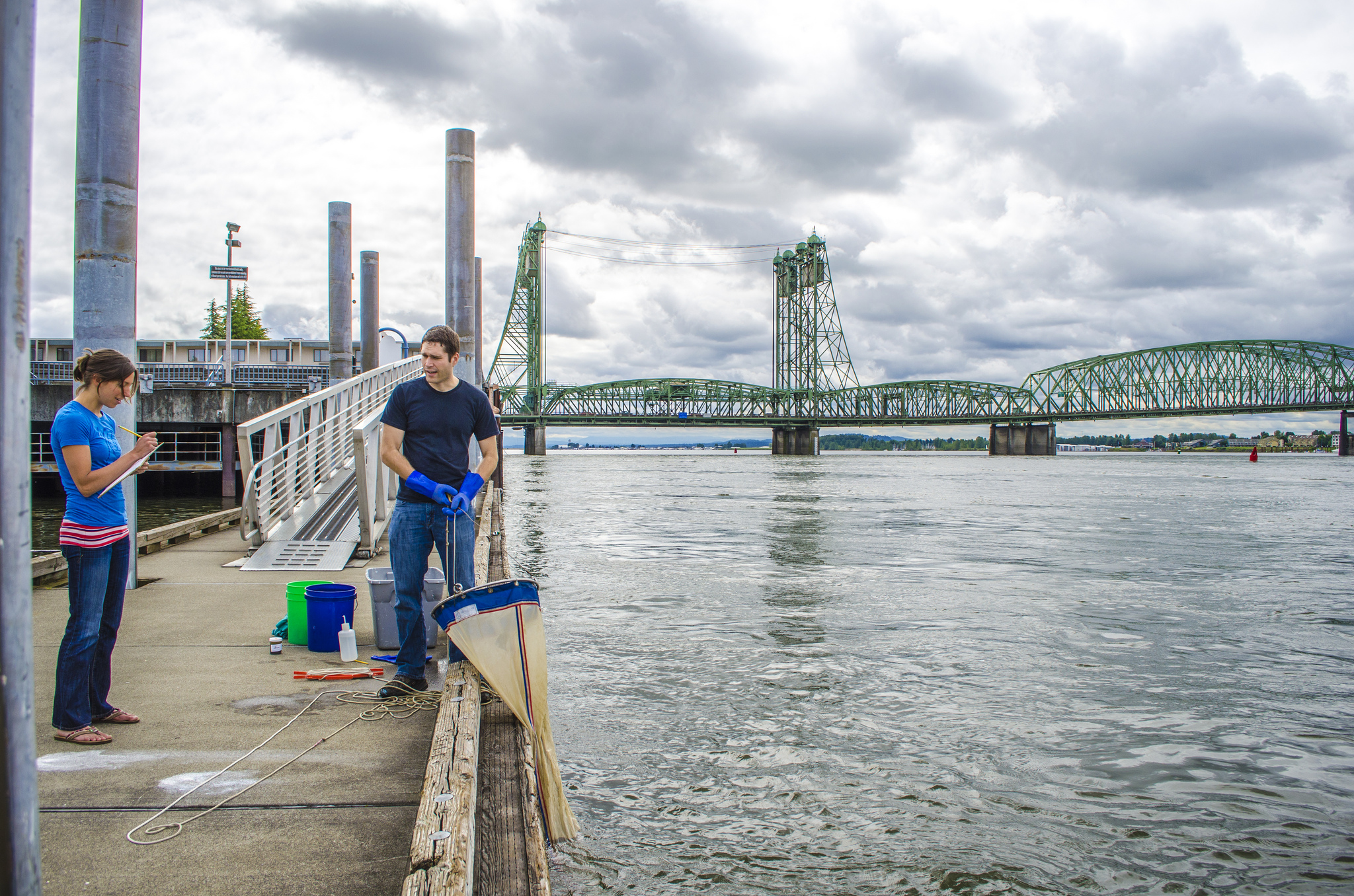Program Description
Ph.D. research in Environmental and Natural Resource Sciences spans a range of the biological, physical, and social sciences that focus on understanding and managing the environment, including diverse aquatic and terrestrial ecosystems and natural resources such as plants and animal. Ph.D. students complete a dissertation, which is a contribution worthy of publication in reputable international journals.
- Environmental policy and management
- Aquatic ecology, forest ecology
- Wildlife ecology, conservation, and biodiversity
- Quantitative and spatial aspects of natural resources
Program Core Competencies and Student Outcomes for Ph.D. in ENRS
The Ph.D. program in ENRS is designed to educate, train and mentor students in six “core competency” areas within the Environmental and Natural Resource sciences.
- Advanced knowledge of ecosystems, including biotic and abiotic structure and function, the roles of humans and societies, and applications to management.
- Advanced knowledge in research methods and data analysis, including aptitude for assessing a wide range of environmental and/or social science data.
- Ability to critically examine and creatively address interdisciplinary problems.
- Advanced knowledge in the ethics of managing and conducting research in the environmental and natural resource sciences, actively incorporating issues of environmental and social justice, equity and inclusion.
- Ability to effectively communicate knowledge of environmental and natural resource sciences to a wide range of audiences, through multiple modes of delivery, including written and oral formats.
- A specialized subject area to be defined by the student and the student’s Supervisory Committee.
Through the pursuit of attaining competence in these areas, students who successfully complete the Ph.D. in ENRS will be able to:
- Attain knowledge and expertise in core disciplinary areas, as well as appreciation and application of interdisciplinary approaches.
- Recognize, think critically about, and develop creative solutions to scientific problems.
- Master the field, laboratory, data analysis and theoretical skills necessary to perform the research.
- Write successful research grant proposals or otherwise obtain research funding.
- Effectively communicate the results of their research.
- Become effective teachers in field, laboratory and lecture-room settings.
- Prepare future students to successfully compete for jobs in industry, academia, and government.
- Contribute scientific leadership and expertise at the local, state and national levels.
- Become visible members of the scientific community by taking organizational and service roles.
Program Requirements:
72 hours minimum of total credits, consisting of:
- 15 hours minimum of graded coursework at 500- level if student has an M.S. Or 17 hours minimum of graded 500-level coursework if student has only a B.S.
- 9 hours maximum non-graduate 300/400 level graded coursework
- 20 hours minimum of SOE 800 – 1 credit during each semester enrolled except summer.
Courses taken for audit or courses graded Pass/Fail may not be used on the program of study.
Also required:
- Preliminary exam
- Dissertation
- Final Oral Exam -Dissertation Defense
Preliminary Qualifying Exam
Each student is required to pass a preliminary examination to become a candidate for the Ph.D. degree. This examination will be taken after most of the required coursework has been completed, as determined by the dissertation committee, and upon submission of a dissertation research proposal, usually after the second year in the program. It will consist of a
written exam followed by an oral defense, the format of which will be determined by the individual committee.
Both will focus on the student’s major area of competency, courses taken, and the subject matter of the proposed research. If the student fails to pass the examination after the allowed number of attempts, SOE will recommend to the graduate school that the student be disenrolled from the program.
Developing a Program of Study
Specific courses to be included on a student’s degree plan (Program of Study) are determined as a joint effort between the student, their committee chair (academic advisor), and other members of the advisory committee to meet the needs of the student.
The program of study is an official graduate school form which must be filled out and submitted to your graduate coordinator by a specific date (see below). You may find the official form here.
Pullman, Puyallup, and Tri Cities Students: Programs of study are due by a specific date in your third semester of study. These dates are October 1st if your third semester is during the fall, and March 1st if your third semester is during the spring. These are firm deadlines, set in place by the Graduate School.
Vancouver Students: Your program of study is due at the end of your 2nd semester.

Ph.D. Student Edwin Jacobo & Summer Tanager


Multi-campus Program

